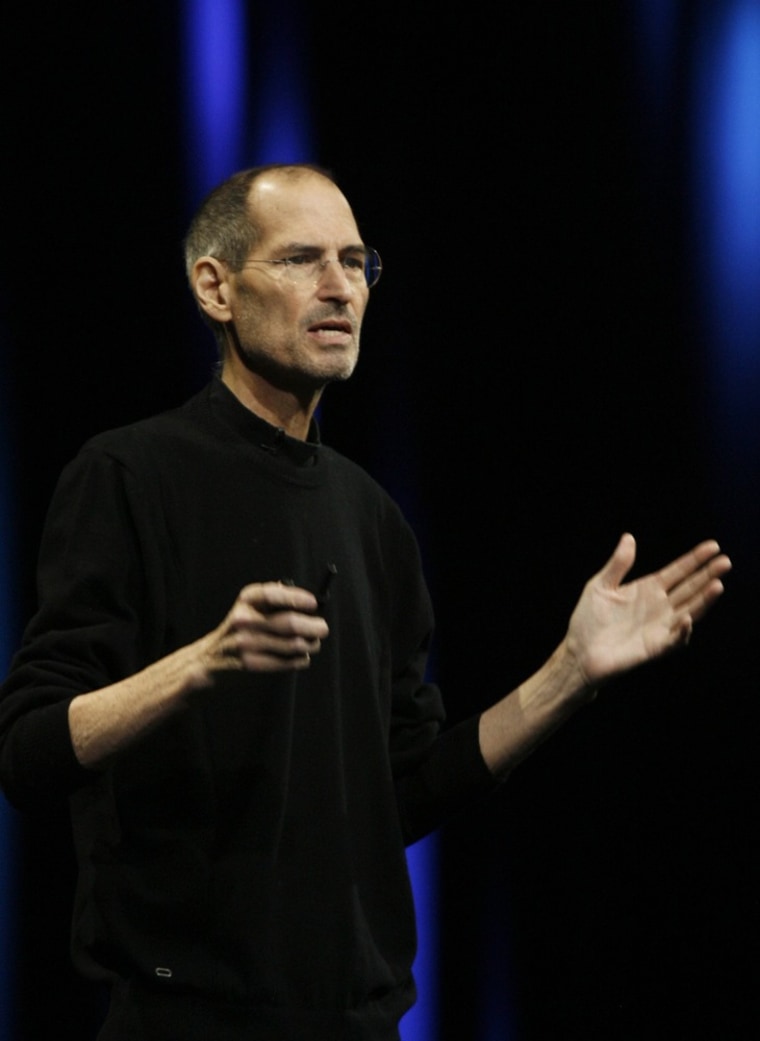Many of the world's biggest companies are failing to devise solid succession plans for the brand-heroes seen as the engines behind their businesses, investors say.
With Apple Inc shareholders still reeling from last week's resignation of Steve Jobs, fund managers are worried scores of other firms lack the contingency plans to cope if scandal, illness or sudden retirement robbed them of their corporate compasses, arresting growth as a result.
"Inevitably, if you are having to do things at speed because of a crisis, you are not necessarily going to be able to get the right or best person for the job," Emma Howard Boyd, head of corporate governance at Jupiter Asset Management, said.
"From my view, it is important to have forward-planning conversations on those issues when things are stable ... because only then are investors going to become better informed when a company finds itself in these difficulties," she said.
Shareholders in Deutsche Bank AG and News Corp have recently seen their shares wobble amid uncertainty over leadership, prompting calls for clearer succession planning in an economy that punishes weak or uncommitted management.
Recognizing the potential damage power vacuums can inflict on staff morale, the Association of British Insurers (ABI) is backing a campaign to push detailed succession planning higher up the corporate agenda.
"An effective corporate governance regime sets out a framework of behavior that encourages a long-term attitude in company management and among shareholders," the ABI said in its response to the European Commission Green Paper on Corporate Governance.
"Europe's corporate governance standards can -- if rightly framed -- make a contribution to financing economic recovery."
Simon Wong, a partner at investment manager Governance for Owners, is one of a growing band of activist investors keen to see greater public dialogue on future or emergency board structures, which can snap into place when required with minimal disruption to strategy or brand.
Retailer Marks & Spencer Plc missed this kind of detailed preparation when a replacement CEO for chairman-elect Stuart Rose could not be found and investors paid the price, Wong said.
"Management appeared less able as a result of the shufflings and reshufflings to pay as much attention to the business and this hurt the bottom line," Wong said. "2008 was a difficult time for all but they underperformed in marketing, there were reported product mis-steps and the upset seemed to trickle through the group.
Failing to impress
"For me, succession planning is one of a board's key responsibilities, but one which most actually fulfill rather poorly ... While they may review it periodically, say once a year, I don't think many of them really take charge of it the way they should."
But even those companies dealing with succession issues in good time may be failing to impress.
Deutsche Bank's cumbersome plan to replace retiring CEO Josef Ackermann with dual CEOs Anshu Jain and Juergen Fitschen is seen by some analysts as likely to sow discord at one of Europe's most important financial institutions.
Wilco van Heteren, a senior engagement specialist in the responsible investing team at Robeco, said his company was increasingly involved in talks with companies with opaque succession plans to remind them of the importance of clarity when filling senior vacancies.
"The research we have done shows quite clearly that the level of employee satisfaction relating to the way succession is organized is highly correlated with financial performance in the longer term," van Heteren said.
"It is crucial that companies make succession planning a priority, that involves junior managers so they can grow into those executive roles. Because if they don't, companies risk losing their own human capital," he added.
HSBC Holdings Plc, Europe's largest bank, is also no stranger to trouble at the top. Last September it was forced to deny press reports that former CEO Michael Geoghegan -- who championed the bank's crucial Asian expansion -- had threatened to quit unless he was named successor to ex-Chairman Stephen Green.
Delta Lloyd Asset Management Portfolio Manager Angus Steel said international companies often struggled to give minority investors regular executive access in the same way smaller firms could, and minor stakeholders tended to be among the last to know when a management problem crops up.
Until this changes, Steel intends to put his client's money into a tight batch of under-researched, small-cap companies led by individuals who thrive on sparring-partner relationships with their investors.
"It is difficult to predict the future in terms of people and there does need to be more than one important person, but above all you want a highly motivated and passionate CEO who is the leader and visionary of the business," said Steel.
"If he or she is doing the job correctly, they will be empowering and mentoring people and bringing all the relevant stakeholders with them. That is a battle that requires much more transparency," he said.
